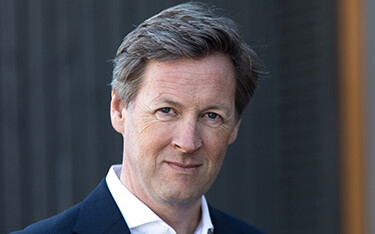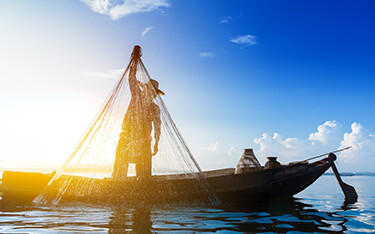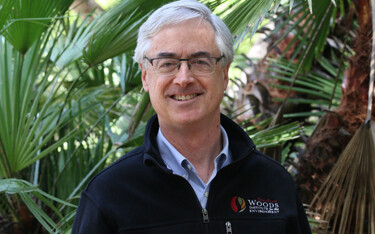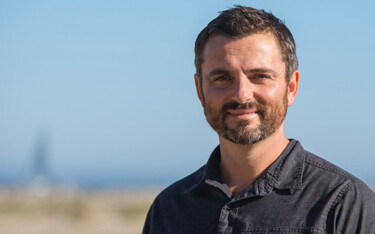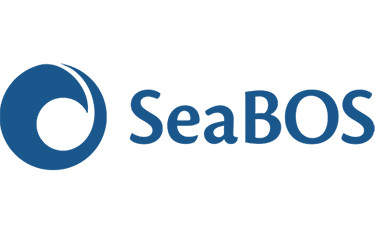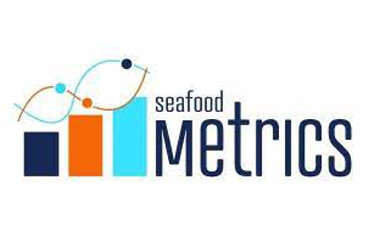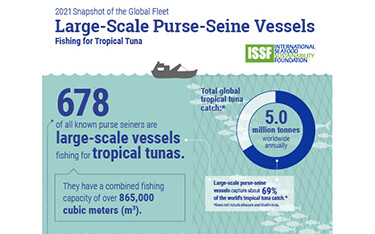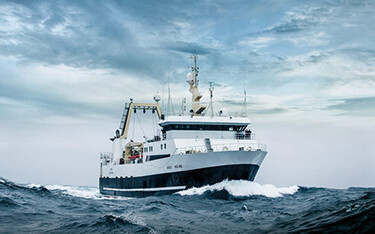Ned Daly is a sustainability strategist with Diversified Communications. He has worked on sustainable markets in a variety of resources for 25 years. Ned worked in seafood for the last decade with SeaWeb, Previously he was director of RugMark International (now GoodWeave), a certification program for child-labor-free rugs coming from Southeast Asia. He also served as chief operating officer for the Forest Stewardship Council in the United States, managing relationships with industry leaders and a diversity of key stakeholders including conservation nongovernment organizations, policymakers and industry trade associations. Ned has also worked on sustainable markets in the agricultural sector and the relationship between resource extraction and ecosystem health. He lives in Alfred, Maine.
Author Archive
The Global Dialogue on Seafood Traceability (GDST) has introduced new traceability systems that will verify claims made by traceability programs regarding their ability to achieve GDST-based interoperability.
Built as an interactive online interface, the verification system simulates how two traceability systems would share data during a routine business transaction to test whether they adhere to GDST stndards.
The
… Read MoreThe aquaculture feed sector is seeing the development of new inputs with the potential to improve the sustainability and availability of its product. While these new innovations can contribute to meeting the needs of a growing population, the buzz around such opportunities overshadows the importance of – and innovation in – traditional inputs like fishmeal, which still holds the greatest potential to efficiently deliver a
… Read MoreNed Daly is a sustainability strategist at Diversified Communications and lead of the Seafood2030 project.
There is a striking similarity between the effort required to run a seafood business and the work that needs to be done to make the industry at large more sustainable.
That is one major finding of the Seafood2030 project, which has been working with industry and other seafood stakeholders to understand how best to design and align future
… Read MoreSeafood2030 recently hosted a Virtual Forum on 1 and 2 December, focusing on illegal, unreported, and unregulated fishing and systems being developed to fight it. The event was recorded and can be watched at https://seafood2030.vfairs.com/.
Featured in a previous forum was the Stanford Center for Oceans’ recent work studying IUU fishing and the global response to it. Along with the full-length presentation from the event, Seafood2030 has
… Read MoreTobias Aguirre, the chief executive officer of Santa Cruz, California, U.S.A.-based sustainable seafood consultancy FishWise, will leave the nonprofit on 30 November, according to the organization.
Over the last 17 years under Aguirre’s leadership, FishWise expanded from a small grassroots organization to a consultancy with global reach and industry partners that include Albertsons Companies, Target, and Hy-Vee – and the
… Read MoreDuring its annual CEO meeting, SeaBOS companies reaffirmed commitments to leading the way on improving the sustainability of seafood throughout the supply chain.
SeaBOS companies represent over 10 percent of the world’s seafood production and have more than 600 subsidiary companies. SeaBOS members include 10 of the largest seafood companies in the world: Maruha Nichiro Corporation, Nissui, Thai Union, Mowi, Dongwon
… Read MoreSustainable Fisheries Partnership’s Seafood Metrics system is now available as an open-access subscription service to retailers, foodservice operators, and supply-chain companies. The system was previously only available to SFP partners.
SFP’s Seafood Metrics is a global system that tracks and monitors seafood sourcing and evaluates a company’s sourcing performance. The expansion of the program is a response to an increased
… Read MoreWith more than 100 companies now affiliated with its global, industry-driven standards for seafood traceability, the Global Dialogue on Seafood Traceability (GDST) announced it is hiring a new executive director to lead it through its next phase of growth.
Nineteen months after first launching the GDST, its standards are emerging as an important framework for facilitating interoperable seafood traceability. The standards are designed to increase
… Read MoreThe total number of purse-seine vessels – calculated based on data from the five tuna regional fisheries management organizations (RFMOs) – has increased from 1,721 in 2020 to 1,855 today, according to the International Seafood Sustainability Foundation’s (ISSF) updated Large-Scale Tuna Purse-Seine Fishing Fleets report, released in July. The report also found approximately 678 vessels defined as large-scale purse-seine vessels
… Read MoreThe Faroe Islands cod, haddock, tusk, and ling fishery has achieved Marine Stewardship Council certification for its Atlantic cod and haddock catch. The new certification for cod and haddock is an extension of the current MSC certification for ling and tusk (cusk) in Faroese waters.
In December 2020, Faroe Islands Minister of Fisheries Jacob Vestergaard made an executive order to introduce a scientifically-based management plan limiting the
… Read More







